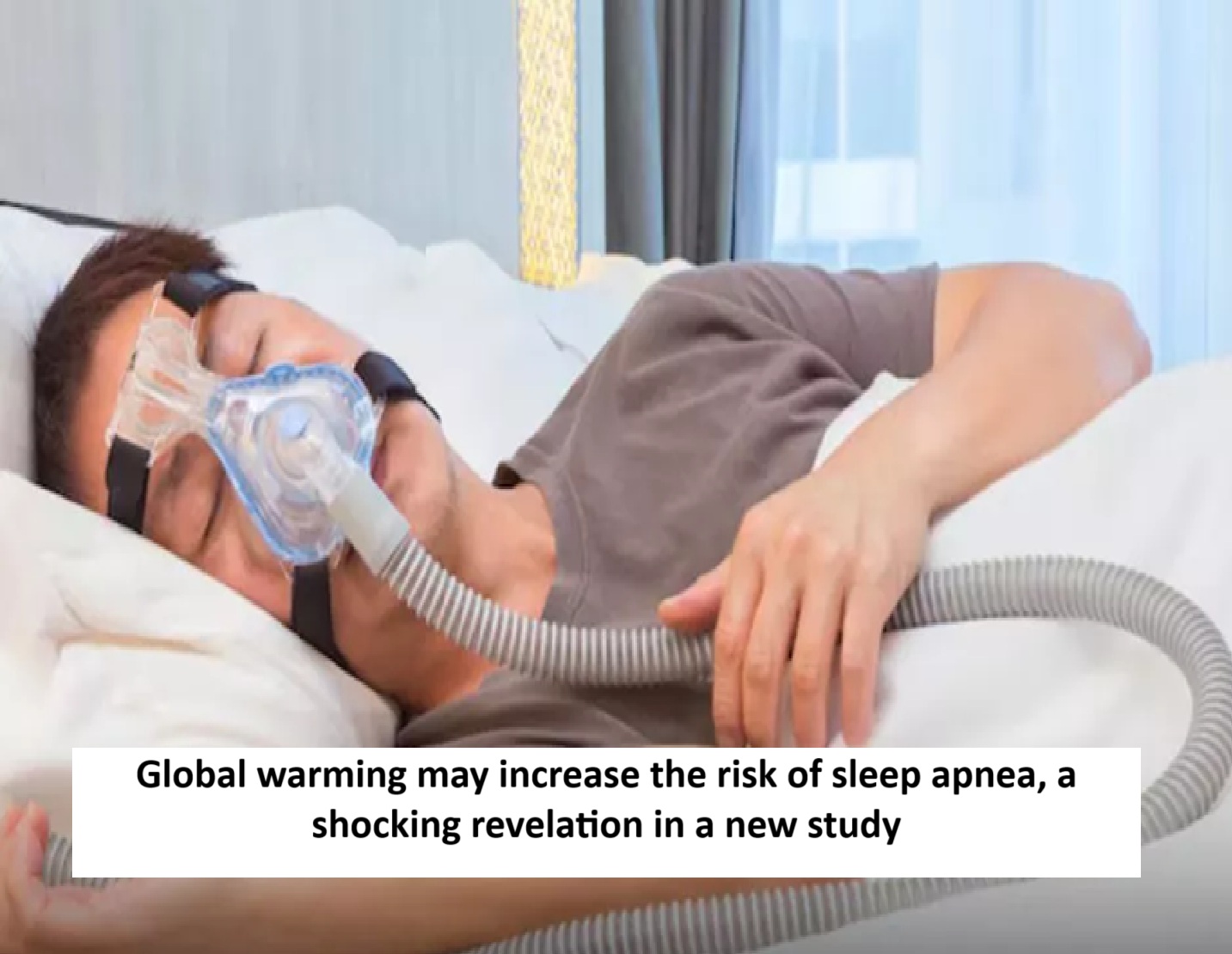
News Topical, Digital Desk : Does your breathing suddenly stop while sleeping at night or is there someone in your family who suddenly becomes silent while snoring? If yes, then it is not just normal snoring, but it can be a sign of a serious health problem, i.e. Obstructive Sleep Apnea (OSA) (Global Warming Sleep Impact). Let us tell you, this is a condition where breathing is repeatedly interrupted during sleep, which breaks the sleep and the body does not get enough oxygen.
In such a situation, now a new research has come out which can increase our concern further. This study shows that as the temperature of the earth is increasing, this problem is becoming more serious (Sleep Apnea Climate Link). This means that global warming is not only affecting our environment but also our sleep and health. Let us know in detail.
What is sleep apnea?
Obstructive sleep apnea (OSA) is a sleep disorder in which a person's breathing stops repeatedly while sleeping. This happens because the throat muscles loosen and narrow the airway, which prevents the body from getting enough oxygen. This not only spoils the quality of sleep, but also has a profound effect on the heart, brain and mental health.
How is this problem related to rising temperatures?
An international study recently published in the journal Nature Communications has shown that as the world is getting warmer, both the severity and prevalence of sleep apnea are increasing. The research found that on hot days, a person's chances of being affected by sleep apnea increase by 45 percent.
This effect was seen more clearly in European countries, but the situation can be even more worrying in developing countries like India, especially where health services are limited and the population is dense.
Weight may double by 2100
Researchers warn that if global temperatures rise by 1.8°C (compared to pre-industrial times), the health, social, and economic burden associated with sleep apnea could increase by 1.2 to 3 times by the year 2100.
Not only health, but the economy is also affected
According to the data of 2023, a disease called sleep apnea increased a lot due to rising temperatures. It affected 29 countries, where people suffered a lot. First of all, people lost their health. This means that more than 78 lakh healthy life years were lost. In simple words, people could not live as long as they could have lived by staying healthy because they fell ill.
The second major loss was at work because people were not able to sleep properly due to sleep apnea , which affected their ability to work. A total of 10.5 crore working days were lost, meaning people were unable to concentrate properly on work or were on leave for so many days.
All this resulted in a huge economic loss of US $ 98 billion. Of this, $ 68 billion was due to the deterioration in people's health and their quality of life, while the remaining $ 30 billion was due to the decrease in productivity at work.
Why is this a matter of concern?
Sleep apnea is not just a sleep problem. It also increases the risk of diseases like heart disease, high blood pressure, depression, dementia and even Parkinson's. If it is not caught in time, both the quality of life and lifespan of a person can be affected.
--Advertisement--

 Share
Share



